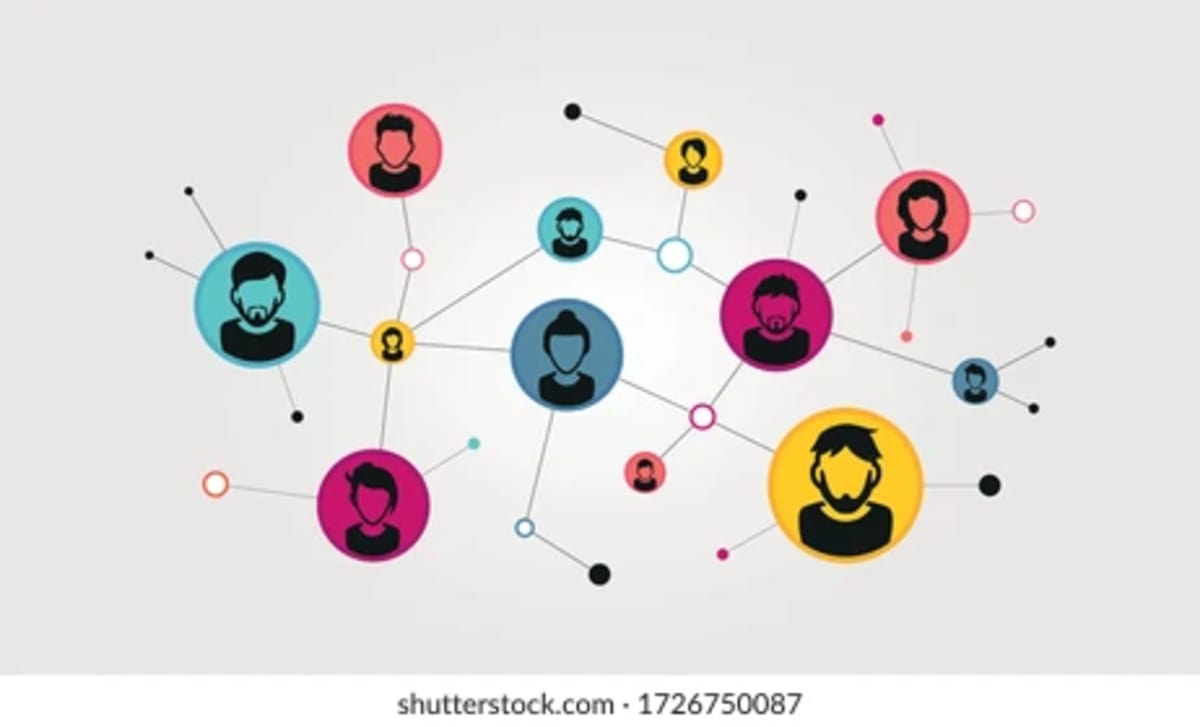Let's be honest—most of us are terrible at building healthy social networks. We either cling to toxic relationships because "we have history," collect superficial connections like LinkedIn badges, or retreat into isolation when things get messy. Meanwhile, we wonder why we feel emotionally drained, unsupported, or like we're performing our lives rather than living them.
Here's the thing: your social network isn't just about having people to grab coffee with. It's your psychological immune system, your resilience infrastructure, and often the difference between thriving and merely surviving life's inevitable curveballs.
The Inner Circle: Your Emotional Navy SEALs
Your inner circle should be small, fierce, and absolutely reliable. These are the people who show up when your life implodes, celebrate your wins without jealousy, and love you enough to tell you when you're being an idiot.
Quality markers of inner circle relationships:
- Emotional safety: You can be vulnerable without fear of judgment or having it weaponized later
- Reciprocity: The emotional bank account stays reasonably balanced over time
- Growth orientation: They want the best version of you, even when it's inconvenient for them
- Conflict resilience: You can disagree, work through issues, and come out stronger
The magic number? Research suggests 3-5 people max. Any more and you can't maintain the depth these relationships require.
Red flags to eliminate: The friend who only calls during their crises. The family member who uses guilt as their primary communication tool. Anyone who makes you feel worse about yourself consistently. Yes, even if you've known them since kindergarten.
The Outer Circle: Your Supporting Cast
This is your broader community—work friends, hobby buddies, neighbors, that barista who knows your order. They're not your emergency contacts, but they add richness, different perspectives, and social variety to your life.
The diversity principle: Your outer circle should challenge your thinking, not just echo it. Seek people of different ages, backgrounds, industries, and worldviews. This isn't just feel-good inclusivity—it's cognitive insurance. When your world gets shaken up, you want multiple perspectives to help you navigate.
Practical building blocks:
- Interest-based connections: Join groups around genuine interests, not just networking
- Service relationships: Volunteer work creates natural bonds around shared values
- Neighborhood ties: The people you might need during emergencies or daily life hiccups
- Professional community: Colleagues and industry contacts who understand your work life
Spotting the Relationship Vampires
We've all got them—the people who leave us feeling emotionally hungover after every interaction. Here's your field guide:
The Crisis Collector: Their life is a series of catastrophes, but they're surprisingly resistant to actual solutions. They want an audience, not advice.
The Scorekeeper: They remember every favor they've done but forget yours. Conversations feel like negotiations.
The Chameleon: They mirror your opinions perfectly—until you're not around. No genuine self to connect with.
The Boundary Bulldozer: "I know you said you're busy, but..." They consistently prioritize their needs over your clearly stated limits.
The hard truth? You don't owe anyone unlimited access to your emotional energy, regardless of history or family ties.
The Architecture of Healthy Relationships
Building strong social networks isn't about becoming more likable—it's about becoming more intentional. Here's your blueprint:
Start with self-awareness: What do you bring to relationships? What do you actually need from others? Many people collect friends to fix their loneliness without addressing their underlying capacity for connection.
Practice emotional generosity: Be the friend you want to have. This means showing up consistently, celebrating others' successes genuinely, and being trustworthy with confidences.
Set loving boundaries: Healthy relationships require fences, not walls. Be clear about your availability, values, and limits—and respect others' in return.
Invest in maintenance: Relationships aren't houseplants that thrive on neglect. Regular check-ins, remembering important events, and creating shared experiences keep connections strong.
When Your Network Needs a Renovation
Sometimes you'll realize your social circle has become a collection of convenience relationships or emotional dead weight. This renovation process isn't about becoming ruthlessly antisocial—it's about creating space for connections that actually nourish you.
The gentle fade: For casual relationships that drain you, simply stop initiating contact and let natural distance develop.
The direct conversation: For important relationships worth saving, address issues honestly. "I've noticed our conversations often leave me feeling criticized. Can we talk about how to communicate better?"
The clean break: For toxic relationships, especially those involving manipulation or abuse, you have permission to protect your peace. You don't need to set yourself on fire to keep someone else warm.
Your Resilience Depends on It
Here's why this matters beyond just having a nice social life: when life hits you with job loss, health issues, relationship breakups, or any major stressor, your social network becomes your bounce-back infrastructure. Quality relationships don't just make good times better—they make hard times survivable.
People with strong social networks show better physical health, faster recovery from trauma, increased creativity, and longer lifespans. They're not just happier; they're literally more resilient.
Your social network is one of the few things in life that's entirely within your control to build and maintain. You can't control the economy, your genetics, or whether your boss is having a bad day. But you can absolutely control who gets access to your time, energy, and emotional space.
So start building intentionally. Your future self—and your resilience—will thank you.
